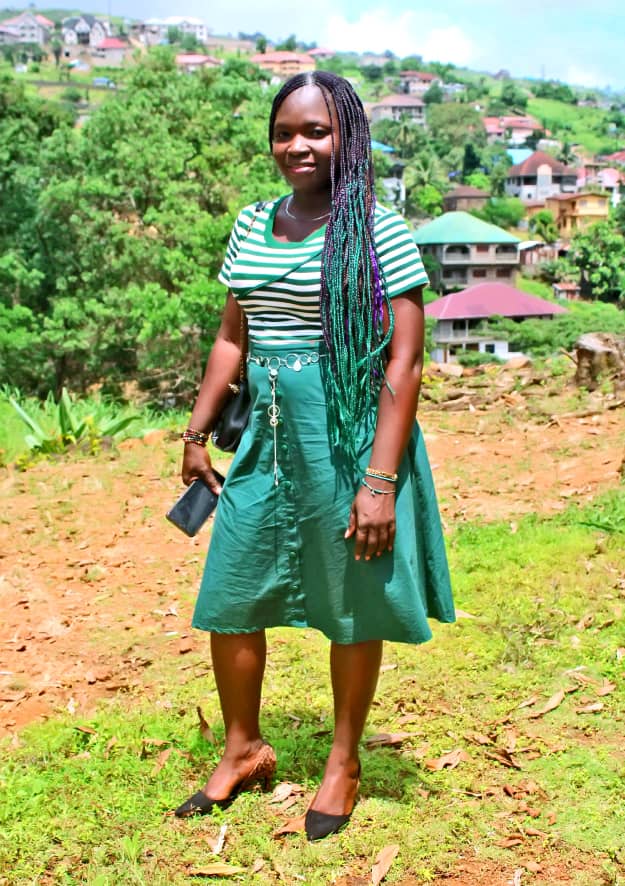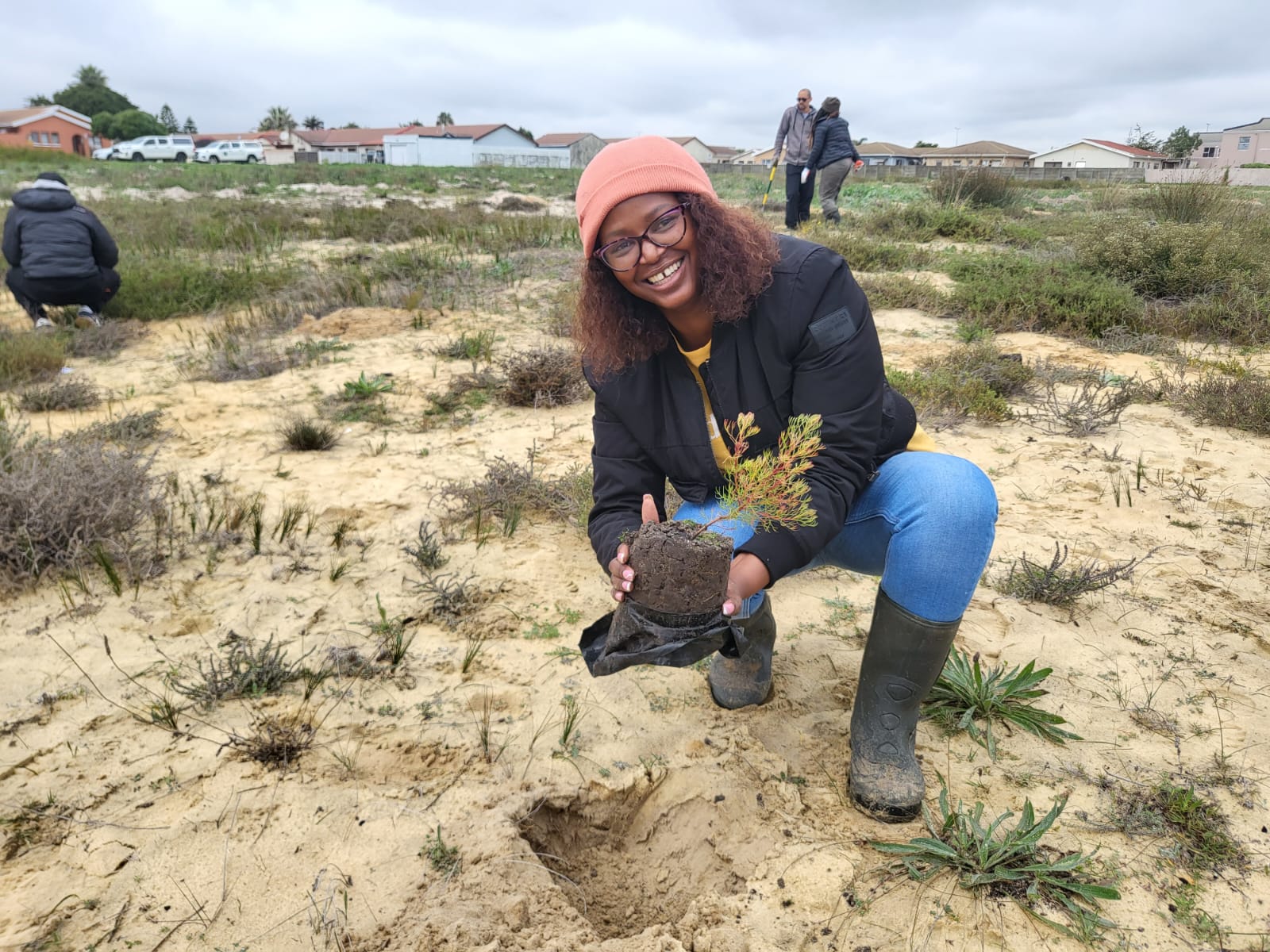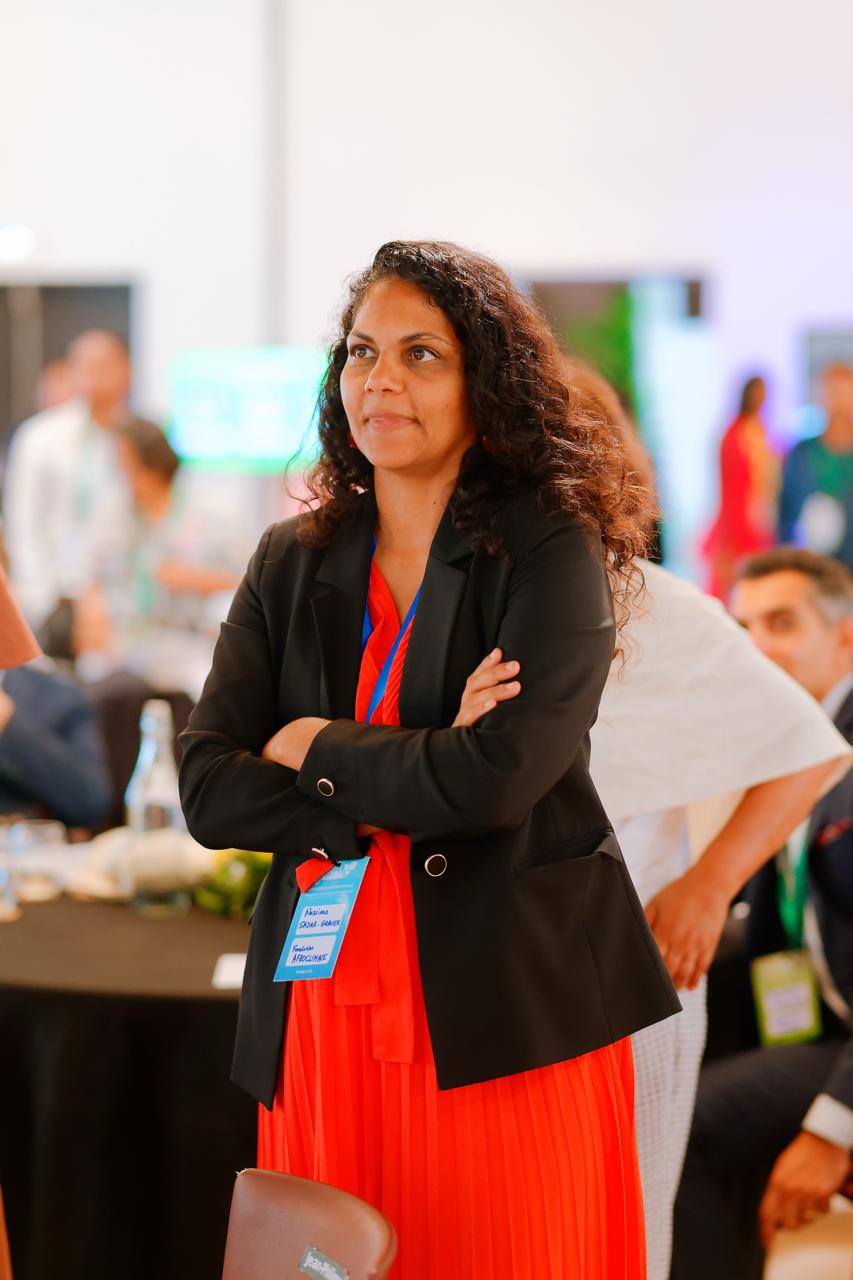Do not suffer in silence. Silence a ticking bomb...But before sharing your truth with the world, find someone you trust, and tell them your story. That will give you back your power.
Ethel Sillah's story is a living representation of the phrase, "Mountains do not rise without earthquakes”. Undeterred by the tremendous odds against her, Ethel fought for her seat at the table.
Born and bred in Sierra Leone, she has a strong passion for conservation, gender advocacy and environmental protection. She leverages her excellent communication skills to positively influence behavioural and attitudinal change towards preserving and protecting the environment.
The 2022 WE Africa fellow shares insights from her journey with Damaris Agweyu.

Ethel, what words would you use to describe yourself?
Ethel is a fighter. Ethel is a survivor. Ethel is smart. She is intelligent, strong and bold.
All these words embody my personality; however, from my teenage years into early adulthood, I experienced traumas that led me to retreat into a shell. I became shy and reserved. Still, I fought my way back because I wanted to prove to myself and the world that I would make it.
Who or what were you fighting against?
Mainly, I was fighting against cultural and societal traditions. I come from a very large family where my father married two wives. Unfortunately, both of them died in 2006/2007, and he went on to marry a third. I have 24 siblings from different mothers, which comes with a lot of pressure. It was challenging to make it under such circumstances. In my final year of high school and university, I had to educate and fend for myself. I told myself that I needed to get an education and break away.
And in breaking away, you eventually ended up in the world of environmental conservation. Tell me about that.
I studied peace and conflict at the university and developed an interest in communication. After my internship, I went to work at a broadcasting studio, where my passion for communication grew. I wanted to become a journalist. I started producing programs and asked my colleagues to invite me to discuss environmental issues. Little did I know that this would become my profession.
A friend who owns a chimpanzee sanctuary saw what I was doing and asked if I was interested in doing the communication for his organisation. The salary wouldn't be much, but I needed whatever little money I could get. More importantly, I enjoyed and knew I would be great at this.
Where does your passion for talking about the environment come from?
I'm passionate about protecting the environment because you cannot talk about the future without talking about protecting the environment.
There was a time a massive stone rolled into the village not far from where my father lived. He urged me to talk about this in relation to the actions we could take to protect our environment. The discussions that followed cemented my love for preserving the environment.
Yes, we need a livelihood. Yes, we need to send our kids to school. Yes, we need that firewood to cook. I get that. But we also need our homes to be safe from natural disasters.
Sometimes I go into the community and ask the older people if things have changed since they were children. They tell me how they would sit in the evening around the fire and see monkeys roaming around. They talk about how the animals would come to the streams in the villages. Then I ask them why they think there have been such drastic changes. The answers they give help them understand the causes of the problems and why we are trying to address them.
Changing behaviour or attitudes is a huge undertaking; however, if an individual is well-educated, they can make informed decisions. And that is what I am doing, changing perspectives through communication, even for children, so that they will become responsible adults one day.
What, in your opinion, is the importance of storytelling in driving change?
It is important to redirect people's mindsets when behaviours are harmful. And the most powerful way to do this is by telling stories.
I remember one older man told me that animals are meant to be eaten. Why was I telling him to protect them? I had to be wise in my answer because when someone tells you that an animal was created to be eaten, you are dealing with religious beliefs. And those are rarely changed.
I told him that yes, he could eat, but what would our children eat if we all ate uncontrollably? From that point of view, I am not insulting anyone. I am not changing but, instead, redirecting a belief.
The big organisations will come up with big projects, and in the end, they will leave. But as storytellers, we teach our people new ways, appeal to reason, and gradually change their minds. Storytelling is key because when the message lands, it stays with people long after you are gone.
And it's not what you say but how you say it.
Yes. I do that by taking the empathy seats—putting myself in their shoes. If I were living in this community, how would I act? My approach is to help people appreciate what they have and urge them to protect it so that they will continue receiving from it.
Many times, people put their goals and interests ahead of everything else. They go into a community and tell people not to go into this forest without providing a suitable alternative.

If you could change one thing, about the world we live in, what would it be?
I would love to see a world where more women are empowered regardless of the position they hold in society. If you are empowered you can change many things, from the home to the community, national, and international levels.
When we talk about environmental degradation, women suffer the consequences the most. We fetch firewood and water. Even when the men assist us to grow the crops we are the ones that harvest and sell them. So if we don't have a platform where we can be seen and heard, not much will change. There is a saying: if you educate a girl child you educate the whole nation because one day, this girl will become a mother and if mama says my child must go to school, they will go to school.
The author Katherine MacKenett wrote: "Every time I witness a strong person, I want to know: What dark did you conquer in your story?" Ethel, what dark have you had to conquer?
Around my 17th birthday, I ran away from home. Among many other challenges, my father could not provide for me. I had no money and didn't know where I would go. Still, I boarded a Boda Boda (minivan) and left. I told the driver I couldn't pay for the ride as I had no money. He was understanding but I still had to alight at the last stop. It was late. I stood by the side of the road, feeling lost, afraid and confused. Two boys came to me and asked me what had happened. I lied that I had come from the village to visit my relatives and didn't know how to locate them. They volunteered to take me to their house, which was close by. "You can spend the night and leave in the morning", they said. I was full of gratitude, but then, that night, the unimaginable happened. These boys raped me.
That incident was ugly. It left me scarred and changed the trajectory of my life.
I was ashamed. I felt guilty. I told myself this would not have happened if I had not run away. I believed it was my fault. Who would I tell? Who would believe me? I kept this to myself for years. It haunted me for years. For years, I would have nothing to do with men.
When my first child's father came into my life, I thought it might be time for me to move on. Three months into the relationship, I became pregnant. He walked out on me before my son's first birthday. I had to raise that boy as a single mom. Imagine having dreamt of nothing but becoming more than your past, and then all this happens. It can either kill you or make you strong.
Do you regret anything about your journey?
If my journey had not happened the way it did, I would not be where I am now. Because I had to fight to become who I am. I had to fight to get an education. I had to fight to redefine who I would become. I would fantasise about the many things I wanted to do and the beautiful places I wanted to visit. Some of my dreams have come to pass. My parents never had the opportunity to leave the shores of Sierra Leone, but I have. If some of these things never happened, I'd be a very different person. So, no. I have no regrets.
What is your advice to those who have been silenced due to trauma?
I only recently found the courage to talk about my trauma with my WE Africa coach. This has been such a liberating experience. My advice, therefore, is: Do not suffer in silence. Silence a ticking bomb, and when it explodes, you cannot control it. I want women especially, to speak up. And in speaking up, we can motivate, inspire and even save other people.
I've written a novel that's yet to be published. It's called Hidden behind the Veil of Silence. In that book, I want the world to see how this thing we call abuse can affect women.
But before sharing your truth with the world, find someone you trust, who will listen to you and allow you to cry, and tell them your story. That act alone will give you back your power. And at the end of the tunnel, the sun will shine again. You will smile again.
***
This interview is part of a series profiling the stories of the 2022 WE Africa leadership programme fellows, African women in the environmental conservation sector who are showing up with a strong back, soft front, and wild heart.




